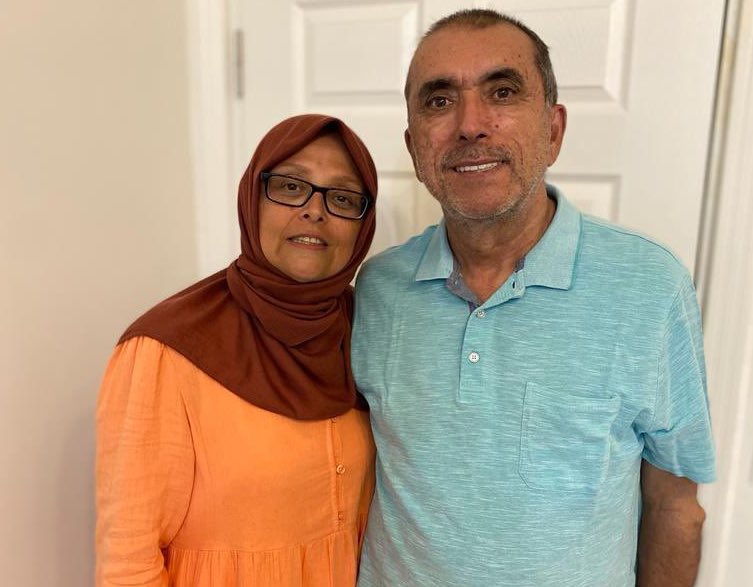Ahmet Zeki Özkan, a 65-year-old man who was arrested in February to serve a sentence for conviction of links to the Gülen movement despite suffering from end-stage cancer, has been released after spending over six months behind bars, local media reported on Friday.
The development was tweeted on Friday by Özkan’s daughter Merve Özkan, who posted a photo of her parents and expressed her wish for other critically ill patients in Turkish prisons to be released as well.
Ağladık,ağlaştık,babamı ilk defa ağlarken gördüm,kızım seni çok özledim dedi,çok uğraşmışsın benim için,Allah razı olsun kızım dedi,daha ne isterim! Darısı diğer hastalara,masumlara,mücadelemizden vazgeçmeyeceğiz! İyiki varsınız! Derdime ortak oldunuz! pic.twitter.com/QurtwfCzvf
— Merve Özkan (@OzkanMerve7) August 19, 2022
The Bold Medya news website said in a report published in February, citing Özkan’s wife, Yasemin Özkan, that he suffered from lung cancer and doctors had only given him a year to live when he was sent to a prison in southern Antalya province and was confined to a quarantine cell.
Inmates who had just arrived in prison were required to stay in a quarantine cell due to COVID-19 measures. However, these cells are notorious for their poor conditions and overcrowding.
Özkan was diagnosed with lung cancer in October 2020. The Antalya Council of Forensic Medicine issued a report saying he was not fit to be incarcerated. However, the national Council of Forensic Medicine (ATK) issued a contradictory report, saying he could stay in a prison that had a doctor and an infirmary.
The Antalya Chief Public Prosecutor’s Office ruled against the postponement of Özkan’s sentence based on the ATK report.
As the number of sick prisoners dying in prison has increased, doubts about the credibility and independence of the council have grown, as the institution is affiliated with the Ministry of Justice.
Özkan was sentenced to six years, three months in prison. He was accused of donating to a charity affiliated with the Gülen movement and of sending his children to a private school that had links to the movement.
Turkish President Recep Tayyip Erdoğan has been targeting followers of the Gülen movement since the corruption investigations of December 17-25, 2013, which implicated then-prime minister Erdoğan, his family members and his inner circle.
Dismissing the investigations as a Gülenist coup and conspiracy against his government, Erdoğan designated the movement as a terrorist organization and began to target its members. He intensified the crackdown on the movement following a coup attempt on July 15, 2016 that he accused Fethullah Gülen, who inspired the movement, of masterminding.
Human rights activists and opposition politicians have frequently criticized authorities for not releasing critically ill prisoners so they can seek proper treatment.
Human rights defender and Peoples’ Democratic Party (HDP) deputy Ömer Faruk Gergerlioğlu previously said critically ill political prisoners were not released from prison “until it reaches the point of no return.” He depicted the deaths of seriously ill prisoners in Turkey who are not released in time to receive proper medical treatment as acts of “murder” committed by the state.
According to the most recent statistics published by the Human Rights Association (İHD), the number of sick prisoners is in the thousands, more than 600 of whom are critically ill. Although most of the seriously ill patients have forensic and medical reports deeming them unfit to remain in prison, they are not released. Authorities refuse to free them on the grounds that they pose a potential danger to society.


